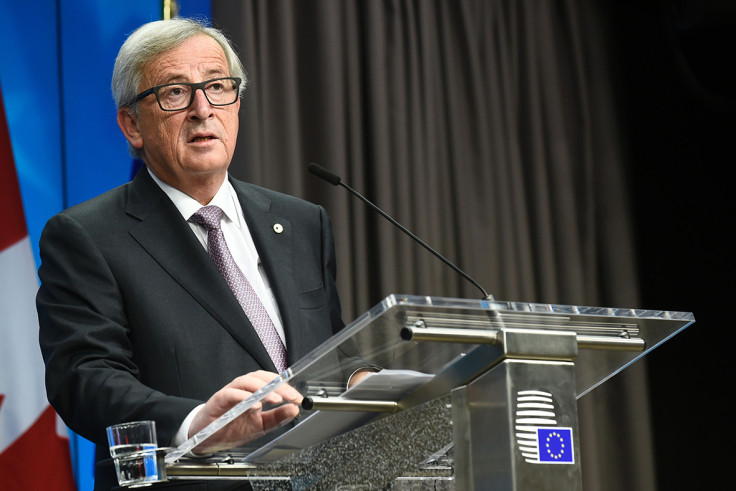EU's Juncker says Europe must not give in to US demands on Nato spending
The European Commission president argued that development and humanitarian aid could also count as security.
Europe must not bow to the demands made by the US under President Donald Trump with regards to European countries increasing their defence spending, European Commission President Jean-Claude Juncker said on Thursday (16 February).
He argued that development and humanitarian aid that the EU nations have been spending on could also be counted as security.
"It has been the American message for many, many years. I am very much against letting ourselves be pushed into this," Juncker spoke on the sidelines of the international Munich Security Conference.
If Germany increases its current military spending from 1.22% to 2% of GDP, it would no longer have a budget surplus, he said.
"I don't like our American friends narrowing down this concept of security to the military," he said. He instead argued that it would be sensible to consider a "modern stability policy" that is made up of several components.
"If you look at what Europe is doing in defence, plus development aid, plus humanitarian aid, the comparison with the United States looks rather different. Modern politics cannot just be about raising defence spending," Juncker said.
He suggested that Europe should bundle their defence spending better and spend the money more wisely and efficiently.
Juncker's comments came after Trump's defence secretary James Mattis gave fellow North Atlantic Treaty Organization (Nato) nations an ultimatum on 15 February saying that the US would "moderate" its commitment to the bloc unless other members boost their military spending.

Mattis echoed Trump's demand that members of the bloc must increase their defence spending to meet a target of 2% of their economic output. The US is said to be putting up 70% of alliance funds.
According to a Nato assessment from last year, only five out of the 27 EU nations — the UK, US, Greece, Estonia and Poland — are reportedly spending more on military.
Trump had earlier complained that some nations are not contributing their share financially to the Nato.
Earlier this week, global think tank International Institute for Strategic Studies, noted that the UK's defence spending had slipped to 1.98% of its GDP in the last year, as economic growth surpassed the rate of growth in the defence budget.
© Copyright IBTimes 2025. All rights reserved.





















